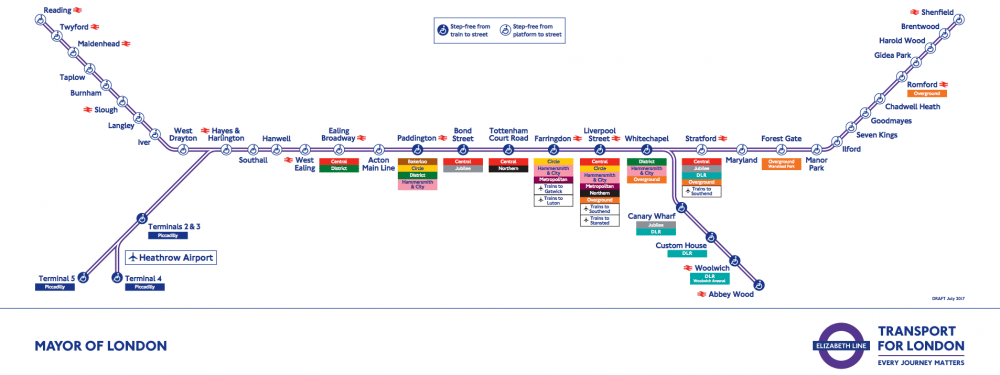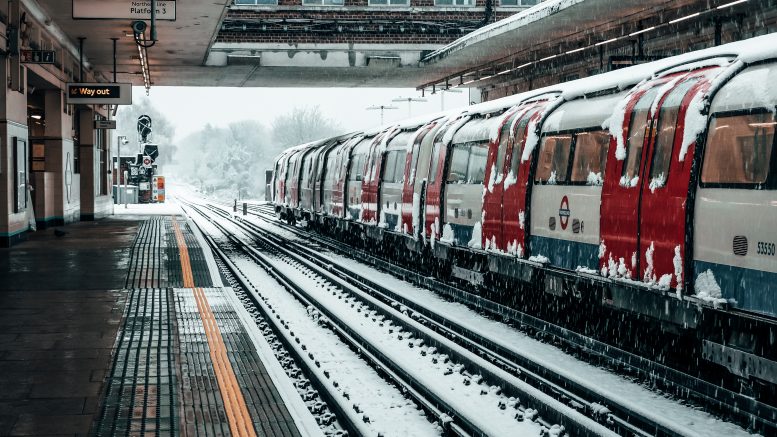The new Crossrail, also known as the Elizabeth line, has been in talks for nearly 9 years in London. With the project getting approved in 2007, it was two years later in 2009 when construction started at Canary Wharf station. Here is a back to basics guide on what’s expected with the new Elizabeth Line.
What exactly is The Elizabeth line?
The Elizabeth line, another name for Crossrail, is planning to cover 73 miles of train track with the majority of it being over ground, meaning only 13 miles of track will be underground, stretching over 60 miles. Crossrail will be the first which reaches as far out as Reading, stopping at Heathrow, but also travels into central London to Shenfield and Abbey Wood located in east London. Over the 60 miles covered by Crossrail, according to their official website there will be 41 accessible stations, 10 which are newly built and the other 30 will be brand new and upgraded stations. It is estimated that once running, it is expected to be used by around 200 million people every year.

Image : Crossrail
Why is the Elizabeth Line getting built?
The route of Crossrail will be highly beneficial to commuters, especially commuters from Reading and Essex. Commuters can expect to save time as they can reach stations such as Bond Street, Paddington, Liverpool Street and Paddington with ease as they will not have to change lines. One of the busies stations in London, the central line, will now share 5 stops with the brand new rails, which will ultimately take some traffic away from the stations that share with the Central line, meaning more convenience, less busy trains and a quicker alternative. The Elizabeth Line is also expected to carry nearly half a million passengers per day, with plans that there will be 24 trains each hour in both directions through central London.
What are the benefits?
Some of the promises with Crossrail include faster travel. From Heathrow to Central London, the Elizabeth line should only take about 40 minutes, which takes off 20 minutes off passengers journey if they were to take Piccadilly Line. Sadiq Khan, mayor of London, has said that the fares on the new line will match and be similar to the tube prices across London, however passengers that plan to travel to Heathrow will be charged an extra fee. According to the London Evening Standard, travelling in zones 1-6 on Crossrail will be the same. However, as Sadiq Khan said there will be an extra fee for those travelling to Heathrow, if a passenger was to travel from central (zone 1) to Heathrow airport, at peak times it wil cost £12.10, which is £7 more expensive that if a passenger was to travel the same route on the Piccadilly line.
Why are there delays?
The initial opening date for Crossrail was December 2018, however in August, 4 months before opening the main section, Crossrail announced that the line would not be open before Autumn 2019. However, November 2019, Crossrail has announced again that the project will be further delayed until 2021, and is expected to be over budget by £650m. The initial budget for Crossrail was £14.8bn, however in the past year that has risen twice, once to £17.6bn, and once again to£ 18.25bn, which is more than £2bn over the initial budget. Chief executive of Crossrail Ltd, Mark Wild, has said that the delay will allow time for more testing to take place.
The Elizabeth Line will hopefully be opening in 2021.
Words by Ivana Finch | Feature Image:Photo by Will Kennard on Unsplash

